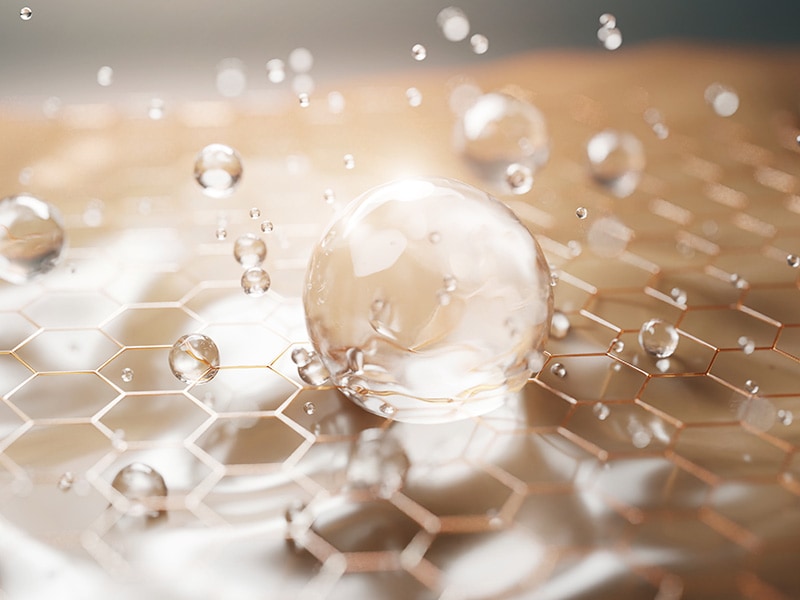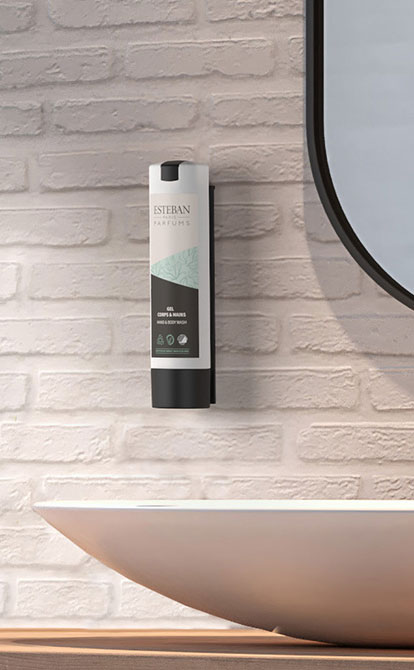Silicone can be found in many skincare products, including foundations, hydrating serums, and moisturizers. Due to its non-reactive properties and non-greasy, creamy texture, it is commonly used as a base ingredient. The silicones used in skincare products are divided into two categories:
- Volatile Silicones: Volatile silicones have a non-irritating, hydrating effect, but rapidly evaporate, leaving the skin with a dry, but silky and powdery texture.
- Non-volatile Silicones: Non-volatile silicones range in viscosity from a thin fluid consistency to a thick gel-like consistency. This type of silicone is permeable and provides the skin with protection from water-loss and delivers a velvety smooth finish.
Silicone is a non-comedogenic ingredient, meaning there is no scientific evidence that it clogs skin pores. It is considered to be beneficial to skin health, because of its occlusive finish, which locks in water and keeps the skin hydrated and dewy. It is also suggested that silicone may aid in healing wounds and reducing scars. Silicone easily bonds with other ingredients. Its easily spreadable and hydrating aesthetic gives skincare products a unique appeal.
Are Silicones Bad for your Skin?
If silicones can be a benefit to skin health, what are the negatives of silicones in skincare products? Silicone is a safe ingredient, however, regular use may cause skin irritation or exacerbate pre-existing acne in people who are already struggling with this issue. Because silicone itself is non-comedogenic, it doesn’t directly cause acne by clogging the pores; instead, its occlusive property may trap comedogenic substances, such as dirt or oils.
Silicone may also cause skin irritation, especially in those that have a silicone allergy. This may cause mild symptoms, like swelling, irritation, redness, or even a burning sensation. Silicone is a hydrophobic material, therefore, it may require more than one cleansing to wash it all off. If it doesn’t get completely cleaned off, it may lead to clogged pores or irritated skin.













